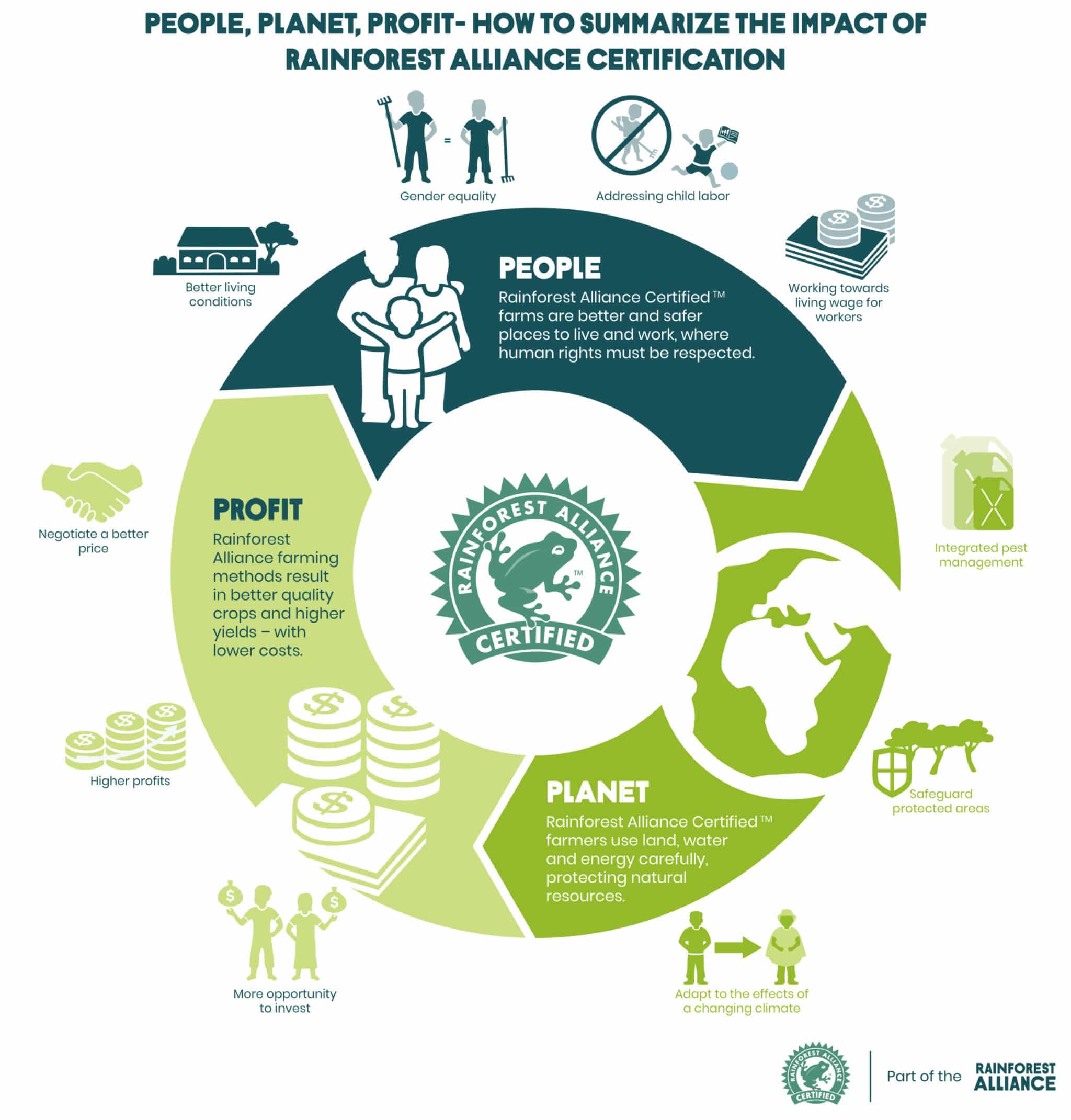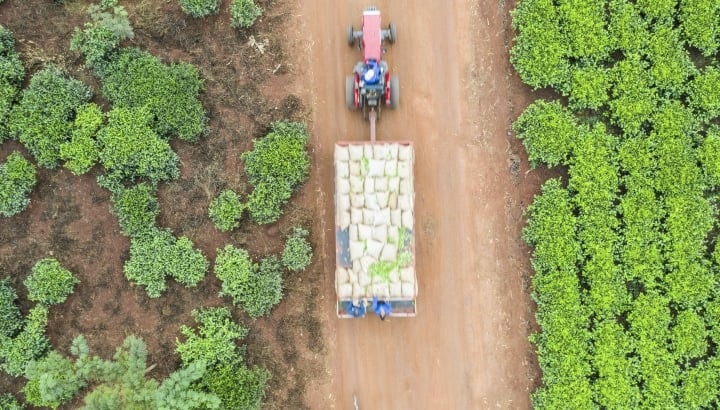The COVID-19 pandemic has shaken the world in profound and unexpected ways. More than six million people have fallen ill from the virus and nearly four hundred thousand have died from it. The livelihoods of millions of farmers and workers have suffered, normal business has been disrupted, and the impacts continue to rise as the virus shifts to new regions.
The jury is still out on how severe and lasting the economic damage will be, or whether the pandemic will spur urgently needed action on climate change, rising inequality and sustainable development. One thing we can all agree on is that “normal” will look different going forward.
The pandemic has focused attention on how dependent we all are on what happens in other parts of the world for the products we use every day. As businesses look to reinvigorate their operations after the crisis, current innovations in sustainability certification can help build more resilient supply chains through a stronger focus on continuous improvement, transparency, and shared responsibility.
Here is how:
- Measurecontinuous improvement to help farmers and companies mitigate risks and build resilience
In May this year, CEOs from 155 global brands, including Mars, Nestlé, and Unilever, set out their commitments to invest in recovery and resilience for a systemic socio-economic transformation. The severe economic impacts of COVID–19 have amplified public opinion and consumer preference for responsible business. Already in the past decade, record numbers of businesses have acknowledged that long-term commercial viability cannot exist without social and environmental sustainability. Many companies have turned to sustainability certification as an effective way of building resilient supply chains and ensuring their long term viability.
Independent research shows that certification has a positive environmental, social, and economic impact. Credible third-party certification systems enable businesses to demonstrate their commitment to tackling deforestation, protecting natural resources, and contributing towards a living income and decent work to producers and workers across the world. These benefits of certification explain why, in 2017, certified production accounted for 16 percent of the total area under cultivation for tea and almost a quarter of global cocoa and coffee production areas.
Recent innovations in sustainability certification focus on meeting the challenge laid down by the CEOs to “reimagine a better future grounded in bold climate action.” For instance, credible certification is moving beyond simple pass/fail criteria, and towards measuring continuous improvement. To achieve more impact, sustainability certification should focus more on supporting farmers and companies in identifying and mitigating context-specific sustainability risks, driving improved performance, and build resilience. Sustainability is not an endpoint—it’s a journey. Sustainability certification must become the vehicle that supports and accompanies whole supply chains throughout that journey.
- Be transparent and accountable: what you see is what you get
COVID–19–related disruptions to global supply chains have also focused attention on the preference consumers and businesses have to know where their products come from. A recent article in The Economist identified the need to make global food systems more transparent, traceable, and accountable so that diseases are less likely to jump undetected from animal to human. The article pointed to certification and quality standards as important tools to achieve this.
Certification systems are now developing a wider and more innovative set of tools that allow producers, consumers, and companies to track agricultural products from farm to fork. Traceability systems are being strengthened to show where products originate and how they move through the supply chain so that sustainability risks can be continuously identified and investments made to address them. Satellite imagery is increasingly being used to monitor deforestation and other environmental risks such as water use and erosion, which threaten farmer productivity and incomes and which put the long–term viability of entire agricultural supply chains at risk. These kinds of data–driven risk assessment and improvement approaches will be key to building up more resilient and sustainable supply chains.
- Share the benefits and the costs of sustainable production
The COVID–19 pandemic has laid bare the stark inequalities within and between countries—which the economic impact of the pandemic will almost certainly exacerbate. The expected global downturn could push millions into poverty in the coming years, with those in low–income groups and poor countries disproportionately affected.
When producers lose income, there is a greater risk of child labor, forced labor, and other human rights abuses in global supply chains. Deforestation can rise as farmers look for more fertile land to increase their earnings. Where farmers cannot earn a living income from producing critical commodities, young people are more likely to abandon farming altogether, putting the long–term viability of some supply chains at risk.
Certification is a key tool for farmers and companies to show they are taking steps to address sustainability. But the burden on making agricultural production more sustainable cannot rest on the shoulders of producers alone. Certification systems must both enable and oblige buyers to share the responsibility to invest in and reward sustainable production.
Research has shown that certification is most successful in improving livelihoods and protecting nature when farmers receive the support and investments they need to implement more sustainable practices. Certification systems must proactively leverage their data on sustainability risks and performance to help companies build resilient supply chains by targeting investments in sustainable production.
One organization already rising to this challenge is the Rainforest Alliance. This month the organization revealed its new seal, which represents the merger of two major agricultural certification standards, UTZ and the Rainforest Alliance. Farmers producing ingredients used in products that carry the new seal are on a pathway of continuous improvement, transparency, and shared responsibility.
On June 30, 2020, the organization releases its new Sustainable Agriculture Standard, incorporating new tools to support producers and companies in setting clear sustainability targets and focusing investments to improve positive impacts for people and nature. Innovations like these are timely tools to support more resilient agriculture and make responsible business the new normal in a COVID-19 world.

First Published on World Economic Forum










